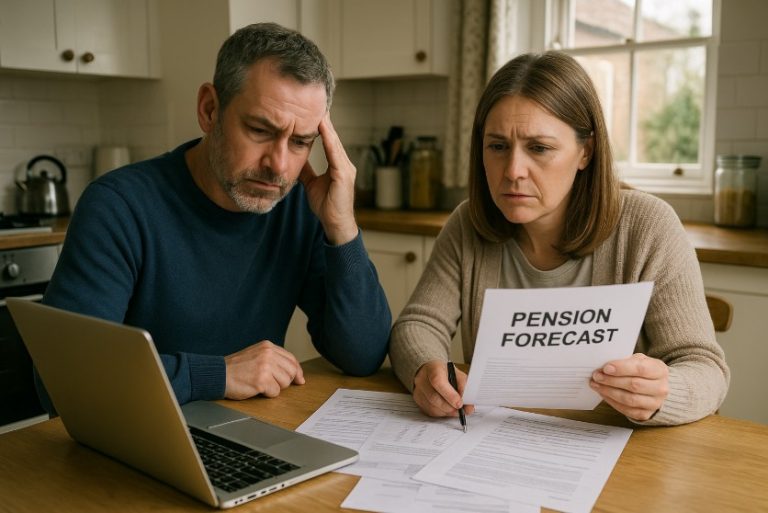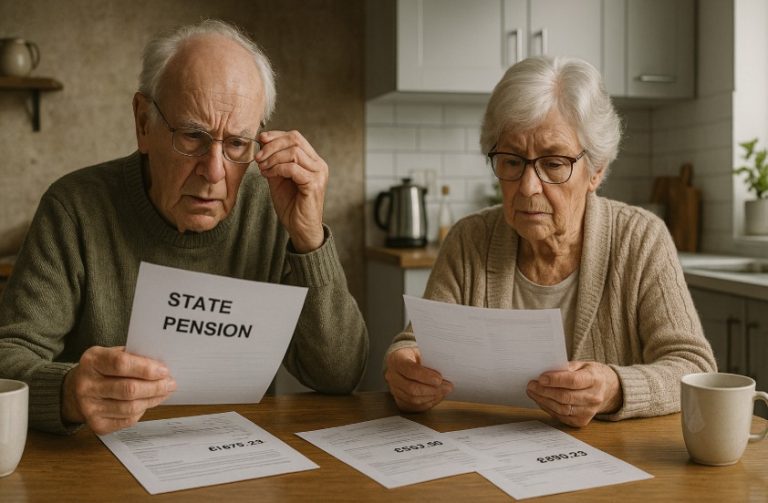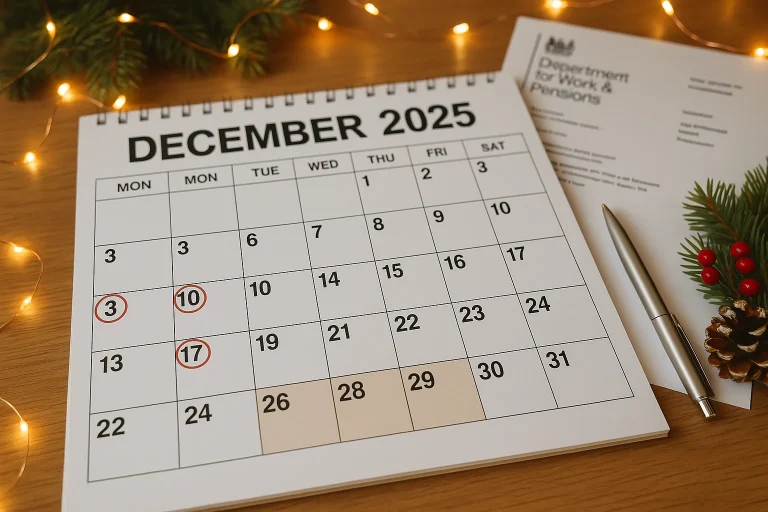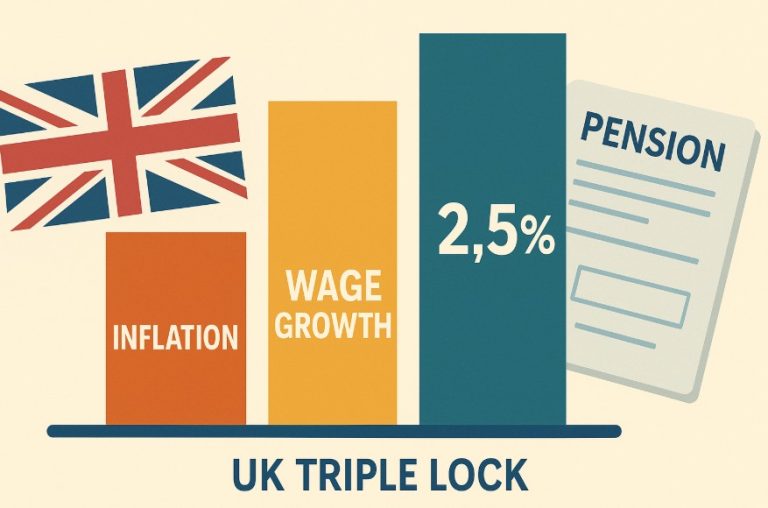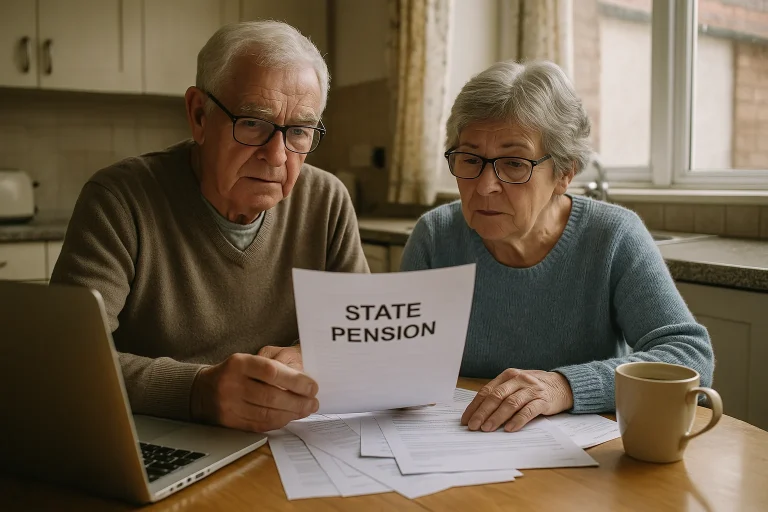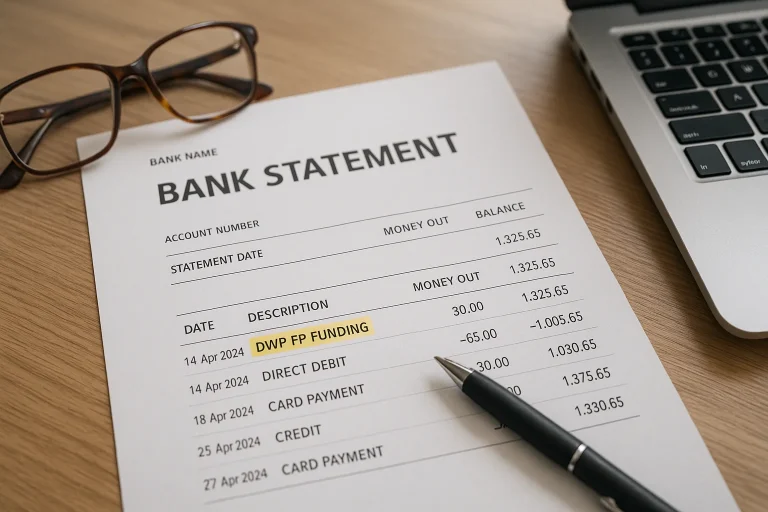Each year, millions of people across the UK receiving certain government benefits are awarded a small seasonal payment known as the DWP Christmas Bonus.
This one-off, tax-free amount of £10 is designed to provide a bit of extra support during the festive season.
While modest in value, it’s a long-standing tradition that remains relevant for many pensioners and benefit claimants. In this guide, we explain who qualifies for the 2025 bonus and how it will be paid.
What Is The DWP Christmas Bonus 2025?

The DWP Christmas Bonus 2025 is a one-off, tax-free payment of £10, automatically issued to people who are receiving certain qualifying benefits. It is paid during the festive period to help eligible individuals with seasonal expenses.
This payment has existed since 1972, introduced under the leadership of Prime Minister Edward Heath.
Despite inflation and rising living costs over the past five decades, the bonus has never been increased from its original amount.
If adjusted for inflation, the value today would be equivalent to approximately £118, based on estimates by the Office for National Statistics (ONS).
The Department for Work and Pensions (DWP) continues to maintain this £10 figure as a fixed seasonal benefit.
This bonus does not need to be claimed and is paid separately from standard benefits or pensions.
Who Is Eligible For The DWP Christmas Bonus 2025?
Eligibility for the Christmas Bonus in 2025 depends on two primary criteria:
- The individual must be present or ordinarily resident in the UK, Isle of Man, Channel Islands, or Gibraltar during the qualifying week. This is expected to be from 1 to 7 December 2025 but is subject to official confirmation.
- The individual must receive at least one benefit from a list of qualifying benefits during the qualifying week.
The term “ordinarily resident” applies to individuals whose habitual home is within the UK or specified areas.
People who are temporarily abroad or living in certain parts of the European Economic Area (EEA) or Switzerland may also qualify if their benefit arrangements allow it.
It’s important to note that individuals who defer their State Pension and are not receiving any of the other listed benefits will not receive the bonus, even if they are over the State Pension age.
Which Benefits Qualify For The DWP Christmas Bonus?

To be eligible for the DWP Christmas Bonus 2025, individuals must be receiving at least one qualifying benefit during the ‘qualifying week’, which is typically the first full week of December. The Department for Work and Pensions uses this specific period to assess eligibility for the bonus.
The qualifying benefits include both UK-wide and devolved Scottish payments. Being in receipt of just one of the listed benefits below during the qualifying week is sufficient to trigger the automatic payment of the £10 bonus.
List Of Qualifying Benefits For The 2025 Christmas Bonus
- Adult Disability Payment: Paid in Scotland for individuals with disabilities to cover extra costs.
- Armed Forces Independence Payment: For veterans injured as a result of service.
- Attendance Allowance: Support for people over State Pension age who need help with personal care.
- Carer’s Allowance: For people caring for someone with a disability at least 35 hours per week.
- Carer Support Payment: A devolved benefit in Scotland, replacing Carer’s Allowance in some regions.
- Child Disability Payment: Devolved benefit in Scotland for children with disabilities.
- Constant Attendance Allowance: Provided under Industrial Injuries or War Pensions schemes to those who require constant care.
- Contribution-Based Employment And Support Allowance (ESA): Must be in the main phase of the claim, which begins after 13 weeks.
- Disability Living Allowance (DLA): For children and adults with care and/or mobility needs.
- Incapacity Benefit (Long-Term Rate): For those who are long-term sick or disabled (now largely replaced by ESA).
- Industrial Death Benefit: Payable to widows or widowers of someone who died due to industrial disease or accident.
- Mobility Supplement; Additional support for individuals who receive a War Pension and have mobility needs.
- Pension Age Disability Payment: A Scottish devolved benefit for older disabled people.
- Pension Credit (Guarantee Element): Income-related support for pensioners with low incomes.
- Personal Independence Payment (PIP): For people with long-term disabilities or health conditions.
- Scottish Adult Disability Living Allowance (SADLA): A legacy Scottish benefit for adults with disabilities.
- Severe Disablement Allowance: For individuals who are severely disabled and have not been able to work due to illness or disability (transitionally protected cases only).
- State Pension: Includes the Graduated Retirement Benefit, paid to most individuals over State Pension age.
- Unemployability Supplement or Allowance: Provided under Industrial Injuries or War Pensions schemes.
- War Disablement Pension (At State Pension Age): Compensation for injury or illness resulting from military service.
- War Widow’s Pension: Paid to widows of armed forces personnel whose death was due to service.
- Widowed Mother’s Allowance: Legacy benefit for women widowed while raising children (largely replaced but still in payment for some).
- Widowed Parent’s Allowance: For widowed individuals with dependent children.
- Widow’s Pension: A legacy benefit for widowed women who were married before 2001.
This wide range of benefits covers different groups, including pensioners, carers, disabled individuals, widows and war veterans. Importantly, many of the qualifying benefits are now devolved in Scotland, which means that Scottish residents may receive similar payments under different benefit names, but these are still recognised for Christmas Bonus eligibility.
Key Points To Remember
- You only need to be receiving one of these benefits during the qualifying week.
- The bonus is automatic no application is required.
- If you receive more than one qualifying benefit, you will still only receive one £10 payment.
- The payment is separate from your usual benefit and will show as “DWP XB” on your bank statement.
The qualifying criteria remain consistent year after year, although new devolved benefits in Scotland may be added or renamed over time. It’s essential for recipients to check their current benefit status, especially if transitioning from legacy benefits to newer systems like Universal Credit or devolved Scottish payments.
Will Universal Credit Claimants Receive The Bonus?
Individuals receiving only Universal Credit will not receive the Christmas Bonus. Universal Credit, despite being a major benefit administered by the DWP, is excluded from the qualifying list.
However, a person may still be eligible if they receive another qualifying benefit alongside Universal Credit.
For instance, someone who claims both Universal Credit and Personal Independence Payment would still qualify through the PIP component.
This exclusion of Universal Credit continues to generate debate, especially considering the growing number of claimants reliant on this benefit during financially difficult times such as the festive season.
How Will The Christmas Bonus Be Paid?
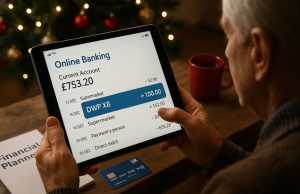
The DWP Christmas Bonus 2025 will be paid automatically to eligible individuals, meaning no application or separate claim process is required.
The Department for Work and Pensions (DWP) identifies eligible claimants based on their benefit status during the qualifying week, which is usually the first full week of December.
Once eligibility is confirmed, the bonus is processed independently from regular benefit or pension payments. This means the £10 payment will not be included in your usual weekly or monthly benefit amount. Instead, it will be issued as a standalone payment and may arrive on a different date from your typical benefit payment.
The Christmas Bonus will appear in your bank account under the payment reference ‘DWP XB’. This specific code helps distinguish it from other DWP payments.
In most cases, the payment is made during the second or third week of December, allowing enough time for DWP processing and bank clearance.
While the payment date may vary depending on the type of benefit and your banking provider, recipients can expect to see the bonus no later than just before Christmas.
For many, this small financial boost is credited automatically without any correspondence. However, some recipients may receive a letter from the DWP confirming the payment this letter can occasionally arrive after the payment has already been made.
To ensure there are no issues with receiving the bonus:
- Keep your bank account details up to date with the DWP or relevant benefit office
- Notify the DWP of any change in circumstances before the qualifying week
- Check your bank statements for the reference “DWP XB” during December
The simplicity of this automatic system means that most eligible individuals receive the payment without the need for any further action or verification.
Will Couples And Partners Each Receive The Bonus?
Couples will each receive a separate £10 Christmas Bonus only if both individuals are in receipt of at least one qualifying benefit.
If only one person in a couple receives a qualifying benefit, the other may still receive the bonus if certain conditions are met.
To be eligible as a partner under these rules:
- Both individuals must be over State Pension age by the end of the qualifying week
- Both must be ordinarily resident in the UK, Channel Islands, Isle of Man, Gibraltar, the EEA or Switzerland
- Additionally, one of the following conditions must apply:
- The partner receiving the qualifying benefit gets an increase for their spouse or civil partner
- The only qualifying benefit received is the Guarantee Credit element of Pension Credit
Christmas Bonus Eligibility For Couples
| Scenario | Partner Eligible For Bonus? | Explanation |
| Both partners receive qualifying benefits | Yes | Each receives £10 separately |
| One partner receives a qualifying benefit, the other does not | Possibly | Eligibility depends on residency and relationship conditions |
| Only one partner, not on State Pension, and no qualifying benefit | No | Not eligible if other partner doesn’t qualify under DWP rules |
This structure ensures that even in a shared household, the criteria are consistently applied to individuals based on benefit type, age, and residency.
What Should You Do If You Don’t Receive The Bonus?
While the Christmas Bonus is automatically issued to qualifying benefit recipients, there may be instances where the payment does not arrive as expected.
If you believe you should have received the £10 bonus but haven’t seen it in your account by late December, there are a few important steps you should take to investigate and resolve the issue.
Step 1: Check Your Bank or Building Society Statement
The first thing to do is review your account activity between the second and fourth weeks of December.
The bonus will appear as ‘DWP XB’, so look specifically for this transaction. Remember that the payment may not arrive on your usual benefit date, so check all incoming transactions during the period.
Step 2: Confirm That You Met The Eligibility Criteria
Ensure that you were:
- Ordinarily resident in the UK, Channel Islands, Isle of Man, or Gibraltar during the qualifying week (usually the first full week of December)
- Receiving at least one of the 23 qualifying benefits during that same week
If you were not receiving a qualifying benefit during the qualifying week, or if you were abroad in a location that doesn’t meet the residency requirement, you would not be eligible for the bonus even if you received it in previous years.
Step 3: Contact The Relevant Benefit Office
If your bank statement does not show the bonus and you believe you meet the eligibility requirements, the next step is to contact the office responsible for your benefit. This could be:
- The DWP for State Pension, Carer’s Allowance, or Disability Benefits
- Pension Service if you are a pensioner
- Disability and Carers Service if you receive Attendance Allowance or PIP
- The Social Security Scotland agency if you receive Scottish devolved benefits such as Adult Disability Payment or Pension Age Disability Payment
You should be prepared to provide:
- Your National Insurance number
- The benefit(s) you were receiving in early December
- The name on your account and bank details for verification
The benefit office will be able to check their records, confirm your eligibility status, and reissue the payment if there was an administrative error.
Step 4: Report Any Changes That Could Affect Eligibility
If you have recently changed address, bank accounts, or experienced a change in your benefit entitlement, it’s possible this information did not reach the DWP in time for the Christmas Bonus to be processed correctly.
Always ensure any updates are reported promptly, ideally before the start of December, to avoid disruption.
In rare cases, payments may be delayed due to processing backlogs or data mismatches. The sooner the issue is reported, the more likely it is to be resolved before the end of the holiday season.
Could The Bonus Amount Change In The Future?

Although the bonus amount has not changed since its inception in 1972, the rising cost of living and inflation have prompted discussions around increasing the amount or abolishing it in favour of more meaningful seasonal support.
The Department for Work and Pensions has not announced any changes to the amount or eligibility for 2025. Any increase would require legislative approval and additional funding allocation.
For now, the £10 bonus remains a long-standing but modest gesture, welcomed by many during the holiday season, but often criticised for being out of touch with modern financial realities.
Conclusion
The DWP Christmas Bonus 2025 continues to offer eligible benefit claimants a small but automatic payment during the holiday period.
Although unchanged since its introduction in 1972, the £10 bonus remains a recognised part of the UK benefits system.
Understanding the qualifying benefits and payment process helps ensure individuals don’t miss out.
For those unsure of their eligibility, checking with the DWP or reviewing their December benefit statement can provide clarity and peace of mind during the festive season.
FAQs about the DWP Christmas Bonus 2025
Does the DWP Christmas Bonus affect other benefits?
No, the Christmas Bonus is tax-free and does not impact any other benefit entitlements or payment amounts.
Can people living abroad still receive the Christmas Bonus?
Yes, but only if they were ordinarily resident in the EEA, Gibraltar, Switzerland, or certain eligible countries during the qualifying week.
Is the £10 Christmas Bonus taxable?
No, the bonus is completely tax-free and separate from any other income or benefit.
Will the bonus amount increase in the future?
As of now, there are no confirmed plans to increase the bonus, despite ongoing pressure and debate around uprating it.
Why doesn’t Universal Credit qualify for the Christmas Bonus?
The DWP’s current policy excludes Universal Credit on its own. However, if a person receives another qualifying benefit alongside it, they may still be eligible.
How do I know if my benefit qualifies?
Refer to the official list of 23 qualifying benefits. If you receive any of them during the qualifying week, you’re likely eligible.
When exactly will the payment arrive in 2025?
The payment is usually made in the second or third week of December, depending on bank processing times and individual cases.

